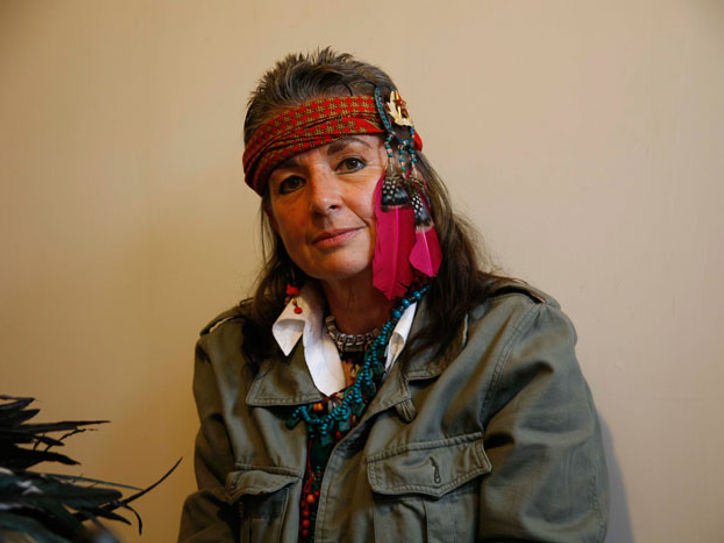—An/Other City, 2012-ongoing
Documents, photographs, digital prints, video, books
This project’ starting point has been a research around 3 cities: Buenos Aires, México DF and Madrid. It was originally conceived as a journey in quest of the experience of lesbian activists in their respective cities during the 70s; but the different circumstances of the travel and the logics of chance ended up producing surprising results that only in part have adjusted to what we expected. We were interested in the women ways of living during those years, and also in how they confronted their political activism, searching for those who had to join together in small groups to fight to change the world, facing the indifference –and often the open hostility- that surrounded them.
Still in process, up to now the project has developed a part of its first chapter (Buenos Aires), and it has materialized a presentation of the complete second chapter (Mexico City). The third part (Madrid) is still in its initial stage.
—An/Other City, Chapter 1: Buenos Aires, 2012-ongoing
In Buenos Aires we found Ilse Fuskova, a woman in her eighties who was the first activist to come out as a lesbian on a TV program there. During the 70s, Fuskova produced a series of photographs that is still almost unknown, and that hasn’t been reviewed in any of the recent revisions about the history of art and activism in Latin America, therefore remaining in the art closet. For several years, Fuskova also co-edited precariously the so-called Cuadernos de existencia lesbiana (Notebooks of Lesbian Existence).
While conversing with Ilse Fuskova, the city of Buenos Aires also surprised us with a place difficult to describe: the club Marlene, a place around which we are putting together a short fiction story. The Marlene is a meeting place for working class lesbians that, for different reasons, don’t fit easily in those gentrified spaces that have accommodated some of the queer positions that have evolved into a kind of cool “brand” that is slowly losing its political roots. At the Marlene, women have created a solidarity network against surrounding lesbophobia, using the club as a meeting point.
A series of photographs and interviews, in addition to a publication, will give shape to this chapter of the project.
—An/Other City, Chapter 2: Distrito Federal, 2012-14
Documents, photographs, digital prints, video-interview, book
Our initial intention was to locate the meeting places of lesbian women during the 70s in Mexico City, but our working process turned the project into an unexpected shape. Before leaving Madrid, we confirmed the existence of a Feminist Lesbian Archive that could be an essential tool for our research, and we decided we had to check it as a starting point. In the end, it was the search for this archive –which resulted to be more than one- and the fact that it became so arduous to visit it that marked our journey. During our search we met Yan María Yaoyólotl, whom for decades has been gathering (and fighting to preserve) an incredibly rich archive of documents that recalls the political activity of women in Mexico. Yaoyólotl also accepted to talk about her life to our camera, and, through her story, she connected us with the hard and violent (external and internal) reality that many lesbian women had to live in Mexico City, especially those who did not belong to the upper class.

An/Other City, Chapter 2: Distrito Federal, 2012-13
Documents from the Historic Archive of Feminist Lesbians in Mexico 1976-2013, Yan María Yaoyólotl (AHMLFM, YMY), from the CDHAL (Centre of Documentation and Historic Lesbian Archive “Nancy Cárdenas”) at the Gregorio and Marta Selser Archive from the CAMeNA, UACM University, from the Centre of Documentation InMujeres at Tacuba Street, Mexico City, and photographs taken at the closed Centre of Documentation at Prolongación Lucas Alamán (Mexico City) and at different places in Mexico City. Interview with Yan María Yaoyólotl.
Installation view



Mexico City: The Search for the Archive (Fiction #9), 2014
Book









An/Other City, Chapter 2: Distrito Federal, 2012-14
Selection of documents and images

Interview to Yan María Yaoyólotl, 2013
Video, color, sound, 50’50”
Exhibition view
Interview to Yan María Yaoyólotl, 2013
Video's extract

Portrait of Yan María Yaoyólotl, 2013